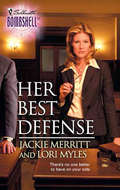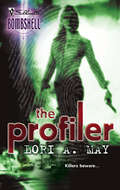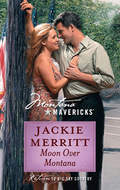Kitab fayl olaraq yüklənə bilməz, yalnız mobil tətbiq və ya onlayn olaraq veb saytımızda oxuna bilər.
Kitabı oxu: «Countdown»
Only the extraordinary women of Athena Academy could create Oracle—a covert intelligence organization so secret that not even its members know who else belongs. Now it’s up to three top agents to bring down the enemies who threaten all they’ve sworn to protect….
Kim Valenti:
An NSA cryptologist, this analytical genius and expert code breaker is the key to stopping a deadly bomb.
COUNTDOWN by Ruth Wind
Diana Lockworth:
With only twenty-four hours until the president’s inauguration, can this army intelligence captain thwart an attempt to assassinate him?
TARGET by Cindy Dees
Selena Jones:
Used to ensuring international peace, this legal attaché has her biggest assignment yet—foiling a terrorist attack abroad.
CHECKMATE by Doranna Durgin
Countdown
Ruth Wind

MILLS & BOON
Before you start reading, why not sign up?
Thank you for downloading this Mills & Boon book. If you want to hear about exclusive discounts, special offers and competitions, sign up to our email newsletter today!
Or simply visit
Mills & Boon emails are completely free to receive and you can unsubscribe at any time via the link in any email we send you.
RUTH WIND
is the award-winning author of both contemporary and historical romance novels. She lives in the mountains of the Southwest with her two growing sons and many animals in a hundred-year-old house that the town blacksmith built. The only hobby she’s had since she started writing is tending the ancient garden of irises, lilies and lavender beyond her office window, and she says she can think of no more satisfying way to spend a life than growing children, books and flowers. Ruth Wind also writes women’s fiction under the name Barbara Samuel. You can visit her Web site at www.barbarasamuel.com.
For my son Ian,
who helped a lot with this book.
Thanks, kiddo!
Contents
Prologue
Chapter 1
Chapter 2
Chapter 3
Chapter 4
Chapter 5
Chapter 6
Chapter 7
Chapter 8
Chapter 9
Chapter 10
Chapter 11
Chapter 12
Chapter 13
Chapter 14
Chapter 15
Chapter 16
Chapter 17
Chapter 18
Chapter 19
Chapter 20
Chapter 21
Prologue
Tuesday, October 5
I t was night and snowing when Kim Valenti parked at FBI headquarters in Chicago. Snow came in through the window of the stolen car—a 1971 gold Buick Skylark—that she’d hot-wired at the parking lot of the UBC television station. She’d be glad to get somewhere warmer.
Before she got out, she checked her face in the rearview mirror. If there was blood showing, she would draw attention to herself, and someone would be concerned or alarmed, which would cause more delays. She couldn’t risk losing any more time.
There was a bomb ticking away at the airport. Somewhere. Due to detonate in exactly—she checked her watch—seventy-nine minutes.
In the mirror, she saw that her lip was swollen. She’d have a black eye tomorrow. A few scrapes, but no damage that would make her stand out too much in a law enforcement agency.
She got out of the car and hid the gun she’d also stolen in the small of her back, tucked into the waistband of her jeans. The weight of it was comforting and cold. Her cell phone was in her hand, the cord around her wrist.
Snow fell more heavily now, and she was half-frozen from the drive through the Chicago streets in a broken-down car with a shattered window.
In spite of the cold, her torn and battered ear throbbed. She wished it would have frozen. At least that would make it stop hurting. Without breaking stride, she scooped a handful of snow from the hood of a nearby car and pressed the icy ball to torn cartilage.
As she approached the front doors of the FBI building, a group of men erupted into the parking lot, rushing toward cars and vans. They shouted directions to one another, pulled on gloves, carted cases and rifles.
All headed, no doubt, for the television station. Kim ducked into the shadow of a truck, watching, her mouth hard. She could tell them that their rush was futile, but they wouldn’t listen to her now any more than they had earlier.
No, if she had any chance of success, there was only one man for the job—Lex Tanner, FBI explosives expert and a compatriot she’d believed in before this morning.
She spied him toward the back of the group, carrying a metal suitcase. His dark hair was cut very short, the nose surprisingly recognizable from the pictures she’d seen, and he was quite tall. At least six-four. Rangy, lean and muscled, with shoulders big enough to shelter her from the wind.
As he neared her spot, she stepped out of the shadows. “Lex Luthor, I presume?”
He started, narrowing his eyes and sizing her up. Recognition washed over his features. “Valenti?” He looked more alarmed than pleased. “Where the hell have you been? I’ve been calling all afternoon.”
“Long story. Right now, I need you to bring your little bomb kit and come with me to the airport.”
“I can’t. I’m on my way to UBC. There’s a terrorist—”
“Yeah, yeah—” she waved a hand “—never mind. That’s not the problem.”
“They’ve stolen a bomb they’re threatening to detonate—”
“It’s not at the station.”
“They’ve got hostages.”
“I know.” She took a breath. “Look, I don’t have time to explain everything, but the drama at UBC is a smoke screen—the bomb is at the airport.”
“It’s not there! Don’t you get it? We’ve been over it a hundred and forty-seven times.” His exasperation might have been understandable if they’d been strangers.
If he hadn’t seen that she was extremely skilled. If he didn’t know better.
If she hadn’t proved herself by trusting his instincts, sight unseen.
If, if, if. She shook her head. She could stand here and argue, wasting time, explaining, or she could—
She pulled out her gun, using her body to shield it from the sight of the others, and poked the barrel into his ribs. “I didn’t want to do it this way, but you won’t listen.”
“What—?”
She glared at him. “Don’t make me hurt you, Luthor. I liked you until today.”
“This is crazy.” He glanced toward the men entering their trucks.
“Don’t even think about it.” She jabbed the butt into his ribs, harder. “I am dead serious.”
“You’re going to fuck up your career doing this.”
Kim met his eyes. They were extremely blue. She’d read somewhere that extremely blue or green eyes showed a highly sexual nature.
Furious was more the word at the moment.
Oh, well. “Get in the car and I’ll explain.”
“You won’t shoot me. I know you won’t.”
“I won’t kill you,” she said. “But I will hurt you if you don’t come with me. Now.” She pushed harder.
He resisted. “Explain.”
She met his eyes with an icy lift of her own eyebrow. “Walk.”
He glanced over his shoulder. No one was looking at them. Kim nudged him. “I tried to go through channels, but none of you has given me the respect I deserve, and because of that, people may die unnecessarily.”
“If I go against orders, I’ll be fired.”
“I’m not talking anymore.”
For an instant longer, he resisted. His nostrils flared in fury.
“It’s killing you to have to listen to a girl, isn’t it?”
“No, I—”
“My mother was a nurse in Vietnam. Did you know that? She was taken hostage once for three days, and it’s something that has given her nightmares the rest of her life.”
“Why the hell would I care, Valenti?”
“Because you can trust that I am very, very sincere when I say that I hate the whole hostage game. I would do anything to free hostages—but I won’t let other people die. Do you understand?”
He narrowed his eyes, the jaw still mulish. Damn. She really did not want to hurt him. She would if she had to, but it would be messier and she needed him.
“Luthor, I’ve had a very bad night. My ear is killing me. There are a couple of bastards at that television station who may or may not kill hostages, but there are law enforcement officials on scene to deal with them. They also don’t have a bomb at the station, and that’s what I need you for.”
“How is it, Kim, that you’re so much smarter than the entire federal law enforcement community?”
She blinked. “I don’t know, Lex. You tell me. Maybe I’m just smart. One thing I know for sure is that I do know what I’m talking about because—by the way did I tell you I speak Arabic fluently?—I overheard them talking at the television station. There is a bomb or a suicide bomber headed for the airport or at the airport, and people will die if we don’t go now. I don’t know how to defuse a bomb. You do.”
“You finished?”
“Yes.”
“Let’s go. You can explain the rest in the car.”
Chapter 1
One day earlier—Monday, October 4
S omehow, Kim Valenti fell asleep next to her lover. It was not something she ordinarily allowed. Maybe it was the long days trying to break a troublesome code. Maybe it was the cold, nearly winter night. Maybe just general weariness. Whatever.
She slept.
Hard.
And as often happened these days, the nightmares came. Jason, laughing and joking, his big hands and goofy smile—suddenly beheaded. A casualty of war. He’d been a professional soldier, after all. Sometimes soldiers died in the line of duty.
The dream yanked her out of sleep, her hands raised, her legs thrashing, a yell of protest on her lips. This time, her lover caught her in his sturdy arms.
“Hey,” Marc said quietly. “You okay?”
Blinking, shuddering as if she’d nearly fallen off a cliff, Kim wiped her face. “Yeah.”
Kim’s mother, Eileen, had been plagued by nightmares throughout Kim’s childhood, and the children had learned never to awaken her in the usual way, by grabbing a shoulder or an elbow. If she fell asleep on the couch after work, they’d simply stand beside her and call her name quietly until she stirred. To do otherwise was to risk a sharp fist to the face as the soldier she’d been reacted to a threat long past.
Now that she’d lost a son to war, Eileen said she never dreamed at all anymore. Kim had wearily confessed one night, over plates of pasta, that she’d taken it on for her mother. She had regular nightmares about her brother Jason. Her mother had squeezed her shoulder. Sorry, sweetheart.
“Argh!” Kim said, rubbing her eyes. “It’s this damned code! It’s driving me nuts!”
“You’re having nightmares about codes?”
She shook her head. “Not exactly.” She couldn’t discuss it. Her brother’s death was something she didn’t talk about, and the code was something she wasn’t allowed to discuss with a civilian.
The two things were feeding into each other tonight: Jason, dead in Iraq two years ago, and the Arabic code running through her mind. Endless ribbons of delicate, graceful lettering flowing across the back of her eyelids. Over and over. Almost clicking into place, then sliding away from her.
Kim swore. She wasn’t going to be getting any sleep tonight. Even less if she didn’t get rid of her lover.
“We’re not supposed to be doing this anyway,” she said, easing away from him. “No sleeping over.”
He groaned, and buried his well-chiseled face into the pillow. Glossy black hair splashed over the white linens. His shoulders, round and smooth, stuck out of the sheet. “Don’t make me go.”
“You know the rules.”
Marc faced her. “What would it hurt if I slept over just once?”
“Nyet, nope, not a chance.” She rolled away, slid into the robe she’d left at the foot of her bed. As she tied it, she tried to soften up her line a little bit. “You don’t want this to get serious any more than I do. We’d make each other crazy in a week.”
He rubbed his perfectly grizzled jaw. “I know, I know.”
She liked Marc just fine. He was a safe, warm companion, who made her laugh. They’d dated off and on for more than two years, and neither of them saw anyone else, particularly, but they didn’t intend to be serious. No one in his life knew she existed, and no one in hers knew he did. They kept company, sometimes made love, kept each other on track about getting too serious. They were both very ambitious and had no intentions of getting sidetracked from their careers into something as ordinary as love and marriage.
If he’d had a few more brains, he might have been good long-term material, but his IQ just about matched his job: he was a model for a major men’s clothing line. Beautiful to be sure, but not someone she felt she could trust for the long haul. It was the perfect arrangement for the short haul.
Marc buried his face. Made a noise. Kim slapped his very nicely shaped butt. “Get moving.”
“C’mon. Have a heart.” He reached out a big hand with elegantly manicured nails that somehow managed to look rugged anyway. “I’m tired, Kim. Really. It’s cold out there. This bed is so comfortable.”
She headed for the bathroom. “Nope. You’ve got to get moving because I’ve got to work.”
“Work? It’s nearly midnight. Won’t it wait until morning?”
“No. Do you want a shower?”
“No, thanks.” Reluctantly, he tossed the covers off and stood up, stretching. Kim allowed herself to admire him. Too bad he wasn’t brighter, she thought wryly. He was Italian, handsome, kind, and she had no doubt he’d be a good father. And she could look at him for hours. Trouble was most women could, and he’d age well. She suspected he would be married many times as the years went by.
Just a gut feeling.
He put on his jeans and wandered over to put his arms around Kim. He kissed her neck. “Thanks for a great evening. You know I’m crazy about you.”
She patted his hands, allowed the kiss. “Yeah, yeah, Spinuzzi.”
Against her neck, he asked quietly, “Did you have a good time, Kim?”
It was unexpectedly vulnerable. Kim cursed inwardly. One of these days, she was going to have to remember that men were not as tough as they wanted women to think they were.
She turned and kissed him. “Always, Marc. I enjoy your company, and you’re a great guy. We’re just not couple material and you know it.”
He squeezed her shoulder and nodded. “You’re right, you’re right. Go take your shower and I’ll call you in a few days.”
“Thanks.”
After a hot shower, Kim made a peanut butter sandwich and a cup of hot chocolate and carried them into her study.
“Alone at last,” she breathed, tugging her thick hair into a knot at the nape of her neck. She settled her cup and slid her chair up to the computer. Code rolled relentlessly through the back of her brain. Insistent, incoherent. Strings of garbled letters, Arabic and English, back and forth. She squeezed her eyes shut and let go of a sigh.
As a code breaker for the National Security Agency, Kim was trying to decrypt a group of e-mails suspected to have originated with a terrorist network called Q’rajn. The NSA had intercepted dozens of missives over the past few weeks, and the flurry had turned into a blizzard of e-mails the past three days. Kim, along with her partner, Scott Shepherd, had been working for weeks nonstop to find the key. With the increased activity, there was increasing dread.
Something nagged her tonight, a sense of something glimpsed out of the corner of her eye, something visible only in peripheral vision. She wanted another look at the code, to see if that jarred anything loose.
Her study was a plain room with open desks and two computers. The blinds were drawn. It was quiet so late. Her neighbors were largely young professionals like herself, with jobs in the local “alphabet agencies”—CIA, NSA, FBI—or the military installations in and around Washington, D.C., and Baltimore.
While she waited for the computers to boot, Kim ate her sandwich and admired the view of her kitchen from the office chair. A large jade plant stood on the windowsill, and on the wall behind the table was an enormous red-and-black Navajo blanket. It had been a gift from her mentor and reminded her of the time she’d spent at the Athena Academy for the Advancement of Women in Arizona. Athena educated girls ages ten to eighteen, at a state-of-the-art facility where girls trained in academics, martial arts, languages and other leadership skills.
Kim was proud of her little condo. Few women in her traditional Italian family lived on their own, even when they were twenty-five, as Kim was. Even fewer lived outside the enclave in Baltimore known as Little Italy. Not one of them had purchased real estate, not on her own.
It was one of the first goals Kim had made and met. The modern, two-bedroom condo was not particularly notable, though she loved the big windows and the master bedroom loft, but it was all hers. All modern convenience and post-turn-of-the-century architecture, which she’d decorated in a bright, coral-and-turquoise Southwestern theme. Some locals thought it was kitschy—so “last year,” as one friend had said—but for Kim, it was a reminder of the things she’d learned in the harsh and beautiful world of the desert. So much of who she was came from those days outside of Phoenix.
As she waited for her computer to load various programs and go through the virus checks, she switched on the radio that sat on the corner of her desk. The dial was tuned to a world music station that played a variety of Latin, African and European selections. The switches helped keep her awake.
Usually.
When the computers were up and running, she clicked on the icons to download e-mail on both machines.
Kim had three e-mail addresses—one for personal mail on her home computer, one for NSA-related material, which had a dedicated line the government paid for.
A third address was used strictly to receive e-mail from a top-secret, outside agency, called Oracle. It was located on her personal machine, to avoid any cross-contamination from work.
On the work computer, she dialed into the government network, where she would be able to explore the files connected to the current case. It was sometimes laborious signing in, but tonight the computer whizzed through the screens, the layers and layers of security designed to thwart hackers.
Most of them, anyway. No system was entirely safe, no matter what the government wanted to believe. They did their best. It was a fairly tight system, and whenever a weakness was discovered, computer security experts were on the spot to fix it.
On her home computer, the personal e-mails sorted into one folder. Twenty-seven, which was a lot for her in one day. She frowned. She’d check them in a minute, but first she switched IDs and asked the computer to fetch her Oracle e-mails. Maybe they’d have something to help crack this code.
Oracle was a special computer system developed to track information gathered from FBI, CIA, NSA and military databases, to be then cross-checked and matched. Created in the days before Homeland Security, it had been developed to help avoid disasters like Pearl Harbor and the 1993 Trade Center bombing, events that might have been prevented had key information been shared between agencies.
Kim had been recruited through AA.gov, a Web site connecting Athena Academy grads and students. She assumed Oracle was run by someone within the school network, and she knew there were a handful of operatives in key organizations—such as Kim and her work with the NSA—but all were protected by a cloak of anonymity. No one knew the agents. No one outside of Oracle knew it existed. It worked beyond the map of security in the U.S. government.
After Homeland Security had been created, Oracle had theoretically become obsolete.
Theoretically.
In fact, Oracle had not disbanded because it provided a fail-safe for the other organizations. Although she didn’t know the particulars, she knew Oracle agents were able to get a fix on problems and provide evidence to thwart troublesome activities before the agencies involved were able to act. It was not infallible any more than any other device, but it helped prevent information from slipping between the cracks.
The folder for Oracle mail was labeled simply Delphi. It only received e-mail sporadically, and always from the same place. Tonight, it showed one new message.
Tonight, Kim fervently hoped for some information about Q-group, and she clicked on the folder. The e-mail read:
To: Ariadne@orcl.org
From: Delphi@orcl.org
Subject: q’s
1. Intelligence reports Q’rajn definitely tied to Berzhaan. CIA has tracked operatives overseas. FBI reports activity within the United States, links to Berzhaan terrorist community.
2. Two names emerging in connection with current activities: Fathi bin Amin Mansour and Hafiz abu Malik Abd-Humam, both natives of Berzhaan. -Mansour is prodigiously intelligent. Advanced degrees from Oxford in chemical engineering and European history. Mother and two brothers killed in guerilla raids by the Kemini rebels four years ago, for which he holds the West responsible. He is connected to several bombings. His whereabouts are unknown. See attached photograph, taken in London, 2001.
-Abd-Humam is an associate of Mansour’s father, a professor without overt terrorist ties. Appears to be a devoted family man, religious but not overtly so. He has protested Western (particularly U.S.) involvement in Berzhaan politics and has written papers supporting self-determination for his country. His connection is not yet known. There are no known photos at this time.
Delphi
The attached photo showed a man in his early fifties, impeccably dressed in a dark business suit. His face was dominated by large, dark eyes and an intense expression, and Kim imagined that he generally received more than a cursory second glance from most women.
Kim copied the e-mail into a word-processing program, removed all header information and printed a copy. Then she destroyed the e-mail, both through the delete key and a more sophisticated function designed to erase it entirely from the hard drive. If she were investigated or hacked, there would be no trace of Oracle on her computer.
Taking the paper from the printer, she sipped her hot chocolate, thinking. Maybe the names themselves would offer a clue toward the code pattern.
Were there possibilities in the names? Abd-Humam was a common surname, but it had religious overtones: servant of the high-minded. Mansour was a very common name. She scowled, trying to remember. She was fluent in Arabic, as well as Italian, French, and—through a lovely triangle of events the year she was twelve—Navajo. But one didn’t remember everything.
With a pad of paper and a pencil, she scribbled more notes, played with possibilities, fixed the English, then the Arabic letters in her mind. Something for the wheels to spin around as she slept.
She rubbed her eyes wearily. Q’rajn was a very dangerous organization, as they’d proven more than once with all the usual—though no less horrifying—earmarks of fanaticism: suicide bombings and death threats and displays of bravado in villages across the Middle East. They always faded away before they could be captured, though the CIA had been lucky in nabbing a key player last summer. He’d not given up much information, but his background and connections had provided some genuine leads and links to terrorism in Berzhaan.
“Okay, let’s try something else,” she said aloud, and keyed in her code to open the work files, and ran sample lines from several e-mails through a mechanical translator: Arabic to English, English to Arabic. Arabic and English combined, one sentence in one language, the next every other word, the next the first language, just to see what might turn up.
Computers at the NSA were busy running the encrypted material—dozens of intercepted e-mails—through programs of various sorts, checking logarithms and structures and known patterns. It was also checking another series of possibilities that Kim had programmed.
Nothing so far.
She slumped in the chair and picked up a bottle of eyedrops from the desk. Leaning back, she dropped Visine into her dry eyes. The shift in position eased the tight muscles in her neck and she stayed there a minute, her chin pointed at the ceiling. Her eyes were closed. The room was quiet.
The agency was sometimes too crazy for her. At home there were no ringing phones, no jokes between members of the team, no one having a low, fierce argument with a spouse over a cell phone connection.
Around her, Kim heard only the breathing of her computers and above that a respectful female voice reading the headlines on the radio. It was the fourth time she’d heard the news since dinner, so she didn’t pay a lot of attention, but kept one ear open for anything new or notable. With such a blizzard of encoded e-mails, she was uneasy. Something was coming.
The newscaster said, “Fourteen people were killed when a train derailed near Munich this afternoon. A terrorist cell in the Sudan claimed responsibility.”
Kim straightened and growled at the radio, “Bastards.” All the innocents who had been slaughtered by terrorists the past couple of decades disturbed her. It was one of the reasons she’d wanted to work with codes in particular. By breaking them down, there was a chance she could stop violence before it happened.
Arabic and English sentences, written white on a black background, tumbled through her brain. What was she missing? It felt as if the key were just out of reach, just beyond her peripheral vision.
“Look to the middle of things,” said a voice in her memory. It was the voice of her first mentor, Arthur Tsosie, a Navajo who had served the United States as a code breaker in World War II.
Arthur had been stable master at the Athena Academy where Kim had gone as a shy and awkward twelve-year-old. Lonely away from her big family, but also determined not to let on that she wasn’t just as tough as the other girls, Kim had often retreated to the stables. Arthur, coming upon the bereft and weeping little girl who missed her family, had befriended her. The old man had provided a pocket of retreat for her when things had become too overwhelming.
And his stories of his adventures as a code talker, told in his lilting, soft tenor, had lit a passion in Kim that had never abated. When she proved to be gifted with both maths and languages, becoming a code breaker had been the obvious choice.
Arthur had always delivered his tidbits of knowledge while caring for the horses. Memories of him were now accompanied by scents of straw and dusty sunlight. She could see his hands, the color of pecans and gnarled into knots so the fingers looked like branches, grasping the currycomb as it moved through a pale blond mane. “The trick to seeing anythin’,” he’d say, “is to remember it’s not what it is on the outside. Code, woman, friend, dog—it’s all the same. Look through the top to the middl-a things.”
Look through the top.
Often that meant simply letting go of perceptions as they stood, to allow new angles to enter her brain. Kim let the reams of code float over the surface of her closed eyelids. The e-mails were exchanged in Arabic, or at least in Arabic script. The messages had almost certainly begun in the Arabic language, as well, although the words were now nothing recognizable in any language the computers could read.
The quirky dots and swirls of Arabic lettering moved on her eyelids, a dance. Along with computers that had been running the cipher text through programs all day, Kim and her partner, Scott, had been manually trying various approaches to decipher the code.
The Arabic letters turned into a swirling, Jasmine-and-Aladdin cartoon script, the dots exaggerated. She slammed her feet to the floor, jolting herself back awake.
“Damn,” she said. “Damn. Damn. Damn.” A sense of urgency built in her chest.
Solve the code.
The answer was right there. She could feel it. What was she missing?
Kim focused on the computer screen and punched some buttons on her keyboard to bring up the program running in the background.
From the radio on her desk came a somber female voice. “President James Whitlow endured questions from the press today regarding the Tom King-Puerto Isla scandal. Many Americans are beginning to question the connection between Puerto Isla and the current unrest in Berzhaan.”
To wake herself up, Kim said aloud, “Unrest in Berzhaan. There’s an unusual situation.”
The unrest wasn’t unusual, but some blamed the United States, or at least the current administration, for the trouble in the small Middle Eastern country. It didn’t matter to Kim whether the assessment was correct or incorrect—her concern was that there were terrorist cells that were determined to punish what they saw as the evil empire of the United States and make a statement by whatever means necessary.
With presidential elections coming up and the general unease about the world situation and the scandal of Puerto Isla hanging over the President, the situation offered too many opportunities.
Again she felt the urgency, that hollow sense of dread. Break the code.
On the radio, the announcer went on, “In other news, presidential candidate, Gabriel Monihan, appeared at a packed rally in New York City this afternoon, part of a ten-city election blitz that began yesterday in Washington, D.C.”
A window on Kim’s work computer popped up. In a blue box with red lettering, she read:
LEXLUTHOR: How’s the code chopping?
Kim grinned. Alexander Tanner was an FBI bomb-squad expert in Chicago who had assisted her with a case two months ago, when a young hacker used bomb schematics to encrypt messages through the upper reaches of government. Privately, Kim had been impressed with the kid, a bored seventeen-year-old with too much time on his hands and a brain that needed challenges. Lex had been the first to spot the schematics while working an unrelated case and had e-mailed Kim to ask her advice over whether the coding could be done.
Pulsuz fraqment bitdi.








